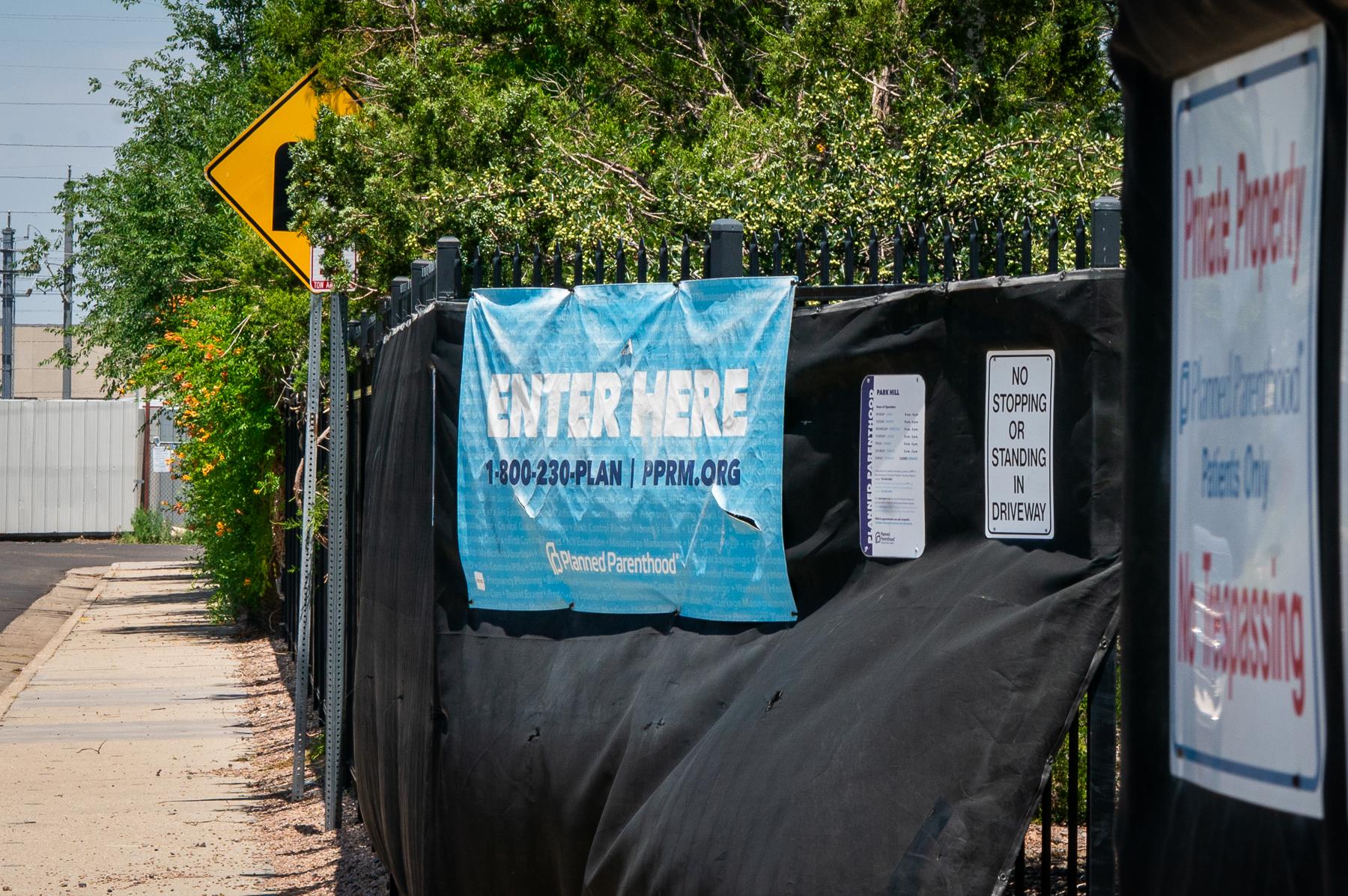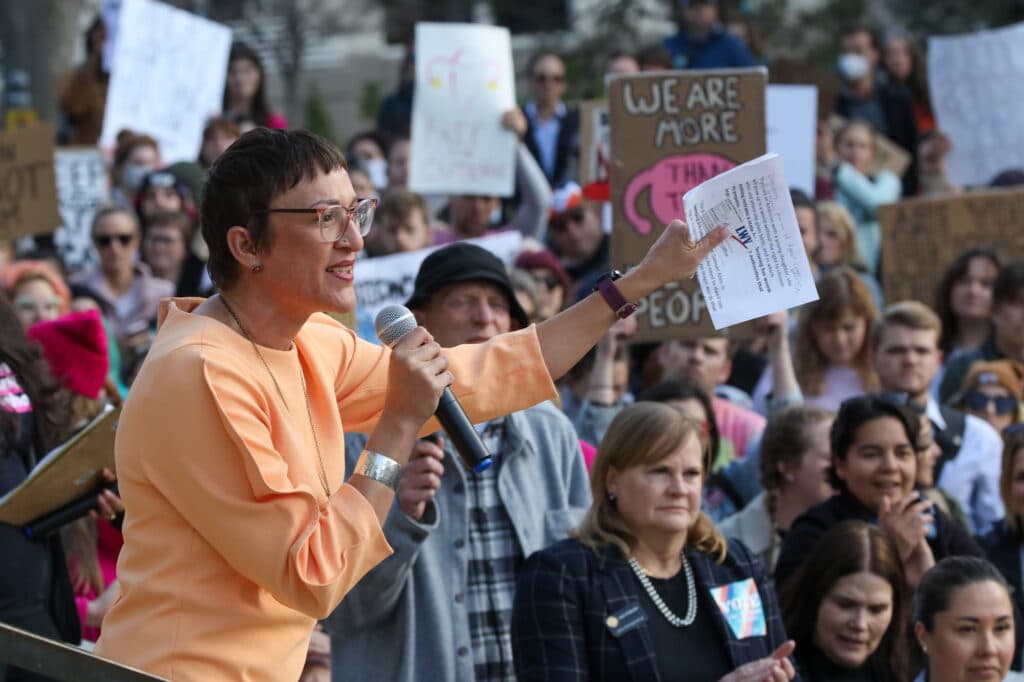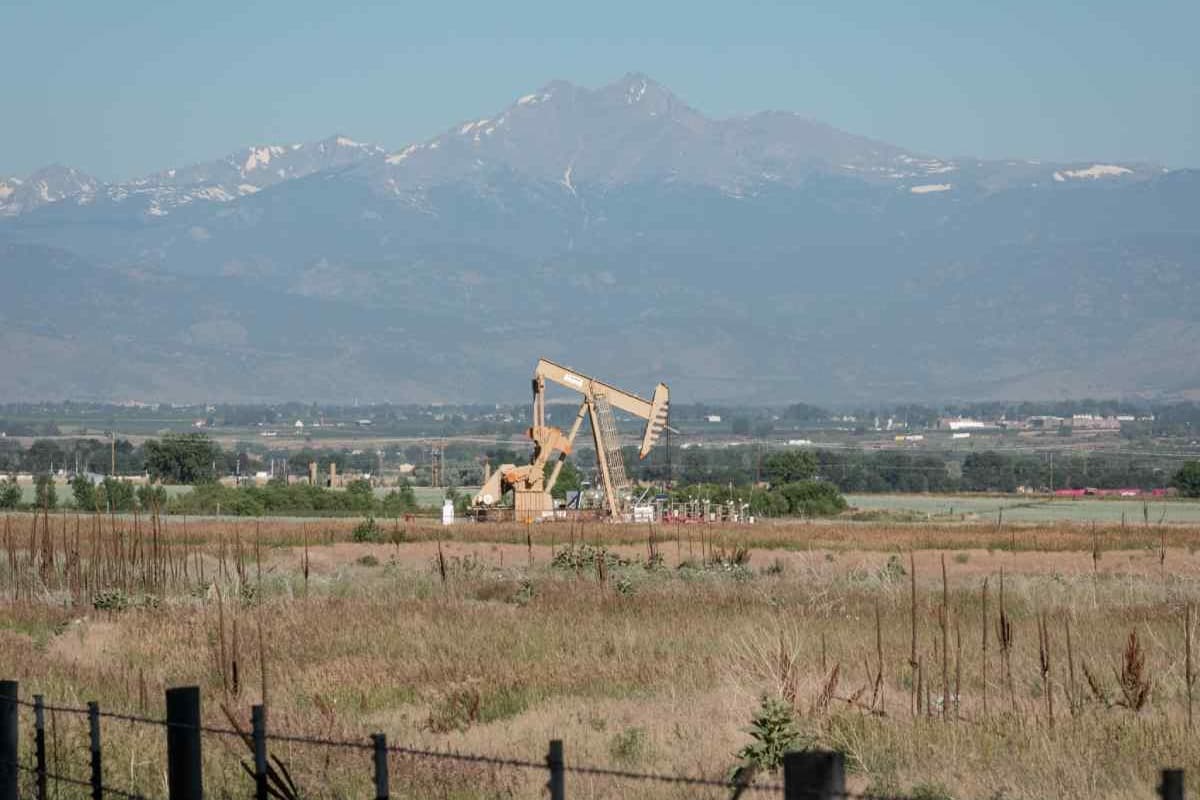
Planned Parenthood of the Rocky Mountains said Medicaid patients still will be unable to receive services at its clinics despite a partial victory in federal court on Monday.
Earlier this month, majority Republicans in Congress passed, and the president signed, a sweeping new law blocking patients from using Medicaid health care plans at Planned Parenthood, a provider of sexual and reproductive health care with affiliates around the country.
The following week, Adrienne Mansanares, the president and CEO of Planned Parenthood of the Rocky Mountains, warned that the change would affect thousands of Colorado patients.
The national group sued the Trump administration.
On Monday, U.S. District Judge Indira Talwani in Boston granted a preliminary injunction. It, for the time being, blocks the government from cutting Medicaid payments to Planned Parenthood affiliates that either don’t provide abortion care or didn’t meet a threshold of at least $800,000 in Medicaid reimbursements in a given year, according to the Associated Press.
Planned Parenthood’s national organization said in a statement after the injunction that it’s thankful the court recognized “the harm” caused by the bill, the AP reported. But the organization said it’s disappointed some of its members will lose this funding, “risking chaos, confusion, and harm for patients who could now be turned away when seeking lifesaving reproductive health care.”
Manzanares said in an interview with CPR Tuesday that the ruling meant Planned Parenthood of the Rocky Mountains could not resume care for Medicaid patients.
She called the ruling “quite confusing” but ultimately "devastating for our patients in Colorado who use Medicaid for their health insurance. They will not be allowed to choose to come to Planned Parenthood of the Rocky Mountains.”
Mansanares said the group had reached out to nearly 1,000 patients “to tell them that they could not come to our health center for that care, and each one of those conversations was absolutely devastating.”
Ceasing to provide abortion care at some Planned Parenthood locations to meet the new laws requirements is not an option. “Based on how the law is written, Planned Parenthood of the Rocky Mountains would have to cease providing abortion care as an organization, at all of our locations, to become eligible again to participate in the federal Medicaid program, under this new law,” said Fawn Bolak, the group’s Regional Director of Communications & Marketing, in an email.
Conversations started last week with policymakers to change a state law that prevents patients enrolled in Medicaid from paying for the care on their own, Mansanares said.
“One of the first things we have to do is get rid of a law in Colorado that prohibits patients on Medicaid from using a provider of their choice and paying for it out of pocket,” she said. “So for patients who would be able to come to Planned Parenthood and would like to suspend their Medicaid use for that visit, I'd like to open the doors for them.”
Mansanares also said she expected more headwinds for the organization from the current administration in Washington, D.C.
“This administration is coming after Planned Parenthood, regardless of what kind of solutions that are tried to attempt the bill is doing exactly what it was designed to do, which is punishing people who rely on Medicaid,” Mansanares said.
She made the comments to Colorado Matters host Ryan Warner in an interview, which has been edited for clarity and brevity. The interview will air on Colorado Matters on Wednesday.
This interview has been edited for length and clarity
Ryan Warner: The One Big Beautiful act, as I understand it, halts your ability to serve Medicaid patients. Now, that triggered a lawsuit. There was just a ruling this week. Where does it leave Coloradans who get care from Planned Parenthood and who have Medicaid?
Adrienne Mansanares: The decision is devastating for our patients in Colorado who use Medicaid for their health insurance. They will not be allowed to choose to come to Planned Parenthood of the Rocky Mountains.
Warner: Now, the ruling had some nuance that particular clinics might continue to receive Medicaid patients, but I think what you are saying is that the nature of the ruling means all of those Planned Parenthood clinics in Colorado, perhaps in the Rockies, do not qualify?
Mansanares: Yes. The ruling is quite confusing in some pieces. One area that is clear is that if health care providers who are providing abortion care continue to do so after Oct. 1, they would not be allowed to receive federal dollars through the Medicaid program.
Warner: That is to say, every clinic affected in this state also provides abortion care in addition to many other forms of health care?
Mansanares: You bet. It also impacts our telehealth programming, which is quite popular as you might imagine, for busy patients and folks who don't want to come into a health center, so we'll no longer be able to accept Medicaid patients through our telehealth programming as well.
Warner: How many people are we talking about, Adrienne?
Mansanares: It's thousands. Over 10,000 people across the state of Colorado will be impacted by this. There's also just the reality that this administration is coming after Planned Parenthood. The bill is doing exactly what it was designed to do, which is punishing people who rely on Medicaid.
Warner: What I think I hear you saying is that abortion services are so integral to the menu of offerings from Planned Parenthood that you find that hard to sort of remove. Is that correct?
Mansanares: Yes, exactly. And just to be clear too, there is already a federal law that dollars cannot be used for abortion care, and we follow that law. There's the federal Hyde amendment that makes it illegal to use federal funds for abortion care. So that hasn't really been on the docket right now. What we are seeing is that this bill is used to prevent all forms of reproductive and sexual health care, birth control, cancer screenings, sexually transmitted infection testing and treatment as well.
Warner: I'm going to put a finer point on that, or at least reiterate what you said there. Medicaid funds could not pay for abortions, and now with this bill and this ruling, Planned Parenthood almost entirely as an institution and certainly in Colorado, is not able to offer to Medicaid patients with reimbursement, any of its health care services, correct?
Mansanares: That's exactly right. Federally funded Medicaid dollars cannot be used for any services.
Warner: What about this idea that you might say, ‘OK, at 50 percent of our clinics, we are going to stop offering abortion services. That is we will continue at some locations, but in order to serve patients at others, we're going to do some segmenting.’ Is that just off the table?
Mansanares: At this time, it is. We can't segment out people's health care. When you come to the doctor and you want to get a physical exam and you want to get on birth control or you want to think about your family planning options, abortion care is health care. It's part of the menu of services that our patients need, and it's one part of their lives. Ryan, we had a patient right after the bill was signed who was referred to us from the emergency room. She had gone to the ER after heavy bleeding following a medication abortion, and they sent her over to us trusting that we could help, and it's a terrible story. She arrived. She was already nervous. She was seeking care, and we could not see her, and she needed help, but it was because of this vicious legislation that we were unable to provide her care.

Warner: Where did you send her, and I suppose the broader question is where will these folks go? You've said in the thousands in Colorado?
Mansanares: We do have a list of resources that we are able to connect patients to other resources who accept Medicaid, those are very slim in our rural communities across the state. As you might imagine, we are the safety net provider, and for so many of our patients, we're their only doctor. They need to come to Planned Parenthood for their care, and so they're having to scramble to look for other providers who accept Medicaid across the state.
Warner: This will disproportionately then affect folks in rural areas, you're saying, where there are just fewer options than in cities, and I want to go back to this idea that Planned Parenthood is so much more than abortion, even though that's why it may most often be in the news, in the headlines, but this notion of cancer screenings of disease prevention, what do you see as the long-term effects potentially of this growth in the carve out? Could you single out abortion services at the federal government, and now it's a whole provider, if you will?
Mansanares: I don't have to guess at this answer. We've seen the impact.The state of Texas was thrown out of the Medicaid program years ago, and we've seen higher incidence of gonorrhea, syphilis, other sexually transmitted infections. We've seen higher incidences of unplanned pregnancies, particularly in younger patients. We've seen higher incidence of infant mortality and maternal mortality. The data is there, and it has been documented across the state of Texas. It's devastating.
Warner: What's your job now?
Mansanares: Boy, that is such a good question, and I'll tell you, I pause because the answer was so easy for me. It's the same job I've always had, which is to keep our doors open for the patients who can come to us, and that's what we're doing right now. We're seeing patients across the state of Colorado that we can legally see, and those are patients that are on private insurance or uninsured. They're paying out of pocket, so we're going to focus on those patients in front of us. And the other part of my job is to change the law while we follow it. So in Colorado right now, we've got several doors ahead of us that we need our partners, elected officials, our very close partners in the Medicaid office here in Colorado to help us walk through with a state led solution.
Warner: What would that look like?
Mansanares: One of the first things we have to do is get rid of a law in Colorado that prohibits patients on Medicaid from using a provider of their choice and paying for it out of pocket. So for patients who would be able to come to Planned Parenthood and would like to suspend their Medicaid use for that visit, I'd like to open the doors for them.
Warner: I see. Giving them more options in a world where their options have just been limited.
Mansanares: I also don't want this terrible bill to cause more financial stress on people who are using Medicaid, so it's not a permanent solution to say, well, if you just go uninsured and pay cash to Planned Parenthood, you can go there. I would like for the state to underwrite that care through state dollars.
Warner: Do you have support and buy-in from lawmakers who oppose abortion, but support the other types of care you offer? That is, are there anti-abortion advocates who understand the role Planned Parenthood plays beyond that, or is that a community you need to make greater inroads in?
Mansanares: I will say that in Colorado, we absolutely have champions for reproductive and sexual health care that give us that strength and support to get our patients back through the door. I don't spend time trying to convince people who are politically driven or values-driven to deny care to our patients. We spend time building relationships and partners with those folks who stand alongside us and our patients, and we've known throughout the state of Colorado that people in Colorado support abortion care as health care, and they support Planned Parenthood.
Warner: That is a tactic that may work in a blue state like Colorado or a purple one, but it sure hasn't worked for Planned Parenthood nationally. Do you think the organization has some education to do? Does it need a reinvention so that there's a broader appeal in places that are just redder?
Mansanares: I can't speak to the local realities of what it is to operate in other states. Planned Parenthood of the Rocky Mountains is in Colorado and New Mexico, and we also provide services and support throughout the state of Wyoming, and if you just imagine the differences in those three states.
Warner: Wyoming is part of it, and I thought, well, surely you have some experience?
Mansanares: Even in the great state of Wyoming, we do not get into ideological arguments about abortion care. It is so much more effective to find middle ground where we can say that health care has a sense of dignity, that these are private decisions that people make for a multitude of reasons, and that there's no place for the government in creating barriers to this care.
Warner: What does communication look like right now? Before we go, just take me to the brass tacks of trying to get the word out, I suppose, besides speaking to the press, but how are you communicating with folks? Are they walking in the door and then learning with a receptionist's conversation they need to go elsewhere?
Mansanares: In a little over a week, once the law was put into effect on July 4th, our teams reached out to 991 people to tell them that they could not come to our health center for that care, and each one of those conversations was absolutely devastating. Nearly a thousand people were in tears and were incredibly angry. We had patients that disenrolled from Medicaid thinking that they could still come to us. They came in anyway and said, well, I just got out of the Medicaid system.
They're all very unique conversations, but they do share this sadness and a sense of devastation that they can't come to our health centers for their health care and a deep sense of loss. So a lot of one-on-one conversations, a lot of text messaging, as you might imagine, phone calls, emails, and sadly, a lot of people still coming in for appointments thinking that they can be seen.
Warner: You said you reached out to 900-some odd folks, but you said thousands were affected by this, so were those just folks who were on the books or the ones that you could reach?
Mansanares: Yeah, those were the 991 people who had an appointment with us over the course of seven days.









